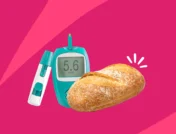Nurses are essential healthcare professionals that help keep patients in clinics, hospitals, and communities healthy. They touch every part of the healthcare system. For those considering a nursing career, it can be difficult to navigate all the possible career options; nurses can pursue a variety of educational routes and work in any number of settings.
The best way to figure out which nursing career path is the right fit for your goals and aspirations is to research them fully. This guide covers the basics of the educational requirements for the top nursing jobs and what you can expect when you start in the workplace. If you’re excited to start your new career, consider all of these nursing specialties available today.
Why nursing could be the career path for you
A nursing career has many benefits, including competitive pay and job security. The universal demand for nurses makes it an attractive career path for those who crave variety and want the flexibility to live and work almost anywhere in the world.
A majority of schools offer nursing certificates and degrees, with some even offering evening and weekend classes for those who already work full-time. Some programs allow students to do at least part of their coursework virtually, giving even more flexibility to those who want to start on this exciting career path.
Finally, nurses are in high demand, due to the number of professionals expected to retire. The number of RNs decreased by more than 100,000 between 2020 to 2021, which was the largest decrease over the past 40 years. – the largest drop ever observed over the past four decades. With many more nurses needed than those available to fill the roles, it provides job security for those looking for a stable industry.
Nursing salaries and job growth
Nurse salaries range depending on the education received and the industry. In one example, the Bureau of Labor Statistics (BLS) suggests a 6% increase in registered nurse (RN) positions over the next ten years. These jobs in the nursing field come with a range of salary options, including:
- Median salary of $48,070 per year for licensed practical nurses
- Median salary of $77,600 per year for registered nurses
- Median salary of $123,780 per year for Advanced Practice Nurses (APRNs)
Different levels of nursing
The registered nurse (RN) is just one level of the nursing profession, with opportunities for those with less education and experience as well as more. Each of these types of nurses has unique training, requirements, and certification. The timeline for getting into the workplace varies.
Certified nursing assistant (CNA)
The certified nursing assistant (CNA) is also called a nursing assistant or nurse’s aide. They help with day-to-day patient care, including helping patients who can’t perform activities of daily living on their own. Their work varies by state, with some able to dispense medication or measure vital signs. There is no minimum timeframe for becoming a CNA. It is an entry-level nursing position and the start of the nursing career ladder.
| Requirements |
|
| Pay | National average of $14.56/hr |
| Job Growth | 5% over the next ten years |
Licensed practical/vocational nurse (LPN/LVN)
Licensed practical nurses (LPN) or licensed vocational nurses (LVN) provide basic health care under the supervision of the registered nurse. Their duties may include checking vitals, provide basic care, and assist with maintaining patient comfort. Their exact scope of practice depends on the state where they practice.. The time to become an LPN is about a year, making it a good higher education option for busy adults.
| Requirements |
|
| Pay | National average of $23.11/hr |
| Job Growth | 6% over the next ten years |
Registered nurse (RN)
Nurses that you see handling medication, helping with a plan of care, working directly with doctors, and managing other nurses are most likely registered nurses (RN).
There are two options for becoming a registered nurse: the Associate of Science in Nursing (ASN) and the Bachelor of Science in Nursing (BSN). The ASN route takes just a year or two, with career advancement possible through more education. The BSN route takes two to four years, depending on the number of courses taken through other programs.
| Requirements for ASN |
|
| Requirements for BSN |
|
| Pay | National average of $37.31/hr |
| Job growth | 6% over the next ten years |
Graduate Nursing Degrees
If you would like to continue your nursing education and licensure to become an advanced practice nurse, you have several options: the Master of Science in Nursing (MSN), Doctor of Nursing Practice (DNP) and the Ph.D.
These nursing professionals are leaders in their workplaces, often teaching or managing other nurses. They often work independently, with the doctor overseeing their care plans, and can diagnose, treat, and prescribe medication.
With an MSN degree, you may go on to become an advanced practice registered nurse (APRN), which includes roles like nurse anesthetists and nurse midwives.
A Doctor of Nursing Practice (DNP) is a doctoral degree, which is a level above the MSN. It is the highest level of nursing, along with the Ph.D. These professionals work in healthcare policy, administration, research, education, and information systems and are leaders in their fields.
Both paths take a minimum of four years and possibly up to eight, depending on the degree choice.
| Requirements for MSN |
|
| Requirements for APRN |
|
| Requirements for DNP |
|
| Requirements for Ph.D. |
|
| Pay | Starting national average of $59.51/hr |
| Job growth | 40% |
Common nursing work settings
Nurses can work anywhere that healthcare services are required, even in environments not traditionally associated with healthcare, such as schools.
Hospitals and surgical centers
Just over 60% of nurses work in hospitals and surgical facilities. Here they cover a wide range of specialties, including labor and delivery, oncology, and emergency rooms. Their skills are put to the test daily, with many opportunities to jump in and make a difference in urgent and life-threatening situations. Since hospitals remain open all the time, nurses who work there keep non-traditional schedules, including nights, weekends, and holidays.
Medical offices
Medical office nurses are crucial for a variety of healthcare services, including treating common ailments like a cold, conducting annual physicals, and administering immunizations during doctor’s visits. This role is more traditional in schedule, with a typical 9-5 workday and some weekends. Nurses may have a more long-term relationship with their patients who may come into the office for regular, ongoing care. Just over 7% of nurses work in medical offices for doctors, dentists, or specialists.
Community health clinics
Nurses are essential for both for-profit and nonprofit healthcare clinics that often cater to low-income or disadvantaged communities. They not only provide medical care to patients but also educate them on making healthy living choices. An important part of this role is to connect patients with resources that promote their overall well-being, such as social services, food assistance, and child health services. Just around 0.9% of nurses work in these social services settings.
Outpatient care facilities
Nurses specializing in outpatient care make up just under 5% of the nurses in the field today. They provide routine care and help with minor surgeries that don’t require an inpatient stay. Outpatient care nurses can help with medication plans, wound care, and ongoing treatment scheduling. As healthcare transitions to performing more procedures on an outpatient basis, this nursing category may be expected to grow.
Assisted living facilities
At an assisted living facility, nurses play a critical role in caring for individuals who can no longer reside safely at home, including older adults, those recovering from major surgeries or accidents, and those requiring ongoing residential care for a disability. Their duties may include administering medication, monitoring vital signs, providing wound care, assisting with activities of daily living, and ensuring the overall health and well-being of the residents. Assisted living and ongoing residential care nurses make up 5.8% of the nursing population.
Schools
All schools need at least one health professional onsite or available to come onsite when needed. This includes elementary schools, high schools, and even colleges. They can help students with non-urgent care and refer them to emergency care, as needed. School nurses also specialize in keeping illness from spreading in schools by teaching proper hygiene; they may assist teachers with sex, nutrition, and health education programs. Only 2.9% of nurses work in schools.
Home health
When sick, disabled, or aging persons need assistance with healthcare tasks in their homes, they rely on home health nurses to keep them healthy. These nurses make up just 5.5% of the nursing workforce and have an important role in our aging society. Home health nurses can work long hours around the clock, including days, nights, and weekends, as patients may need assistance at any time.
Common nursing roles
These nurse jobs are the ones you may be most familiar with.
Clincal nurse |
|
|---|---|
| Requirements |
|
| Timeline for career |
|
| Average salary | $85,192 |
OR nurse |
|
|---|---|
| Requirements |
|
| Timeline for career |
|
| Average salary | $83,650 |
Critical care nurse |
|
|---|---|
| Requirements |
|
| Timeline for career |
|
| Average salary | $82,000/yr |
Cardiac nurse |
|
|---|---|
| Requirements |
|
| Timeline for career |
|
| Average salary | $99,875 |
Dialysis nurse |
|
|---|---|
| Requirements |
|
| Timeline for career |
|
| Average salary | $67,836 |
Pediatric nurse |
|
|---|---|
| Requirements |
|
| Timeline for career |
|
| Average salary | $76,800 |
Neonatal nurse |
|
|---|---|
| Requirements |
|
| Timeline for career |
|
| Average salary | $82,269 |
Oncology nurse |
|
|---|---|
| Requirements |
|
| Timeline for career |
|
| Average salary | $82,177 |
Hospice nurse |
|
|---|---|
| Requirements |
|
| Timeline for career |
|
| Average salary | $81,754 |
Home healthcare nurse |
|
|---|---|
| Requirements |
|
| Timeline for career | 1 year of education for LPN or 2-4 years of education and licensure as an RN |
| Average salary | $60,386 |
Infection control nurse |
|
|---|---|
| Requirements |
|
| Timeline for career | 2-4 years for RN education and licensure |
| Average salary | $98,590 |
Emergency department nurse |
|
|---|---|
| Requirements |
|
| Timeline for career | 2-4 years for RN education and licensure |
| Average salary | $74,903 |
Public health nurse |
|
|---|---|
| Requirements |
|
| Timeline for career |
|
| Average salary | $65,058 |
School nurse |
|
|---|---|
| Requirements |
|
| Timeline for career | 2-4 years for RN education and licensure |
| Average salary | $54,264 |
Occupational health nurse |
|
|---|---|
| Requirements |
|
| Timeline for career |
|
| Average salary | $88,815 |
Travel nurse |
|
|---|---|
| Requirements |
|
| Timeline for career | 2-4 years for RN education and licensure |
| Average salary | $92,996 |
Advanced practice nursing careers
For those committed to getting an advanced degree and putting in more learning hours, there are many career roles to choose from.
Nurse practitioner (NP) |
|
|---|---|
| Requirements |
|
| Timeline for career | 5-8 years for education and licensure |
| Average salary | $120,575 |
Clincal nurse specialist (CNS) |
|
|---|---|
| Requirements |
|
| Timeline for career |
|
| Average salary | $115,307 |
Certified registered nurse anethetist (CRNA) |
|
|---|---|
| Requirements |
|
| Timeline for career |
|
| Average salary | $207,701 |
Certified nurse-midwife (CNM) |
|
|---|---|
| Requirements |
|
| Timeline for career |
|
| Average salary | $119,701 |
Nurse educator |
|
|---|---|
| Requirements |
|
| Timeline for career |
|
| Average salary | $106,890 |
Informatics nurse |
|
|---|---|
| Requirements |
|
| Timeline for career |
|
| Average salary | $74,538 |
Health policy analyst |
|
|---|---|
| Requirements |
|
| Timeline for career |
|
| Average salary | $70,076 |
Nursing management and administration careers
If you have more of an interest as a leader and administrator, these nursing paths may be more to your liking.
Nurse administrator |
|
|---|---|
| Requirements |
|
| Timeline for career |
|
| Average salary | $99,831 |
Nurse manager |
|
|---|---|
| Requirements |
|
| Timeline for career |
|
| Average salary | $89,294 |
Advanced clinical educator |
|
|---|---|
| Requirements |
|
| Timeline for career |
|
| Average salary | $53,805 |
Director of nursing |
|
|---|---|
| Requirements |
|
| Timeline for career |
|
| Average salary | $111,032 |
Chief nursing officer |
|
|---|---|
| Requirements |
|
| Timeline for career |
|
| Average salary | $138,319 |
Other nursing careers
Other exciting careers await those who want to help others but aren’t interested with the more traditional nursing roles.
Geriatric nurse |
|
|---|---|
| Requirements |
|
| Timeline for career |
|
| Average salary | $73,681 |
Military nurse |
|
|---|---|
| Requirements |
|
| Timeline for career |
|
| Average salary | varies by rank |
Forensic nurse |
|
|---|---|
| Requirements |
|
| Timeline for career |
|
| Average salary | $68,893 |
Additional resources on nursing careers
Nursing careers FAQ
Will demand for nursing grow?
The Bureau of Labor Statistics claims that jobs in the nursing field will grow around 6% over the next decade or the average for all jobs. However, some nursing positions will be harder to fill and require more experienced nurses to meet the demand. Demand also varies by geographic region, so take a look at the open positions in your area to see which nurse opportunities are more common.
Is it possible to work while getting a nursing degree?
Many nursing programs are designed to be flexible, with some offering evening and online classes for busy, working professionals. You should expect to have time set aside to complete your clinical experiences, however, which must be done in person, and in a healthcare setting. Once you’ve become a nurse, it’s possible to continue your education, completing a Bachelor’s degree, Master’s degree, or even a Doctorate while still working as a nurse. These programs are geared toward the professional already working in the field.
Can I work as a nurse while studying to become one?
You must first have your nursing license before you can work in the field. Once you’ve gotten your LPN or RN, however, you can continue earning college credits and working toward an advanced degree in your off hours. It’s common for nurses to work toward higher levels of education while still employed as a nurse.
What are the challenges of a nursing career?
While nursing offers opportunities to help people in a variety of settings, it’s not a perfect career. Challenges include long or unpredictable hours, being on your feet all day, and working with difficult people. Depending on the healthcare setting, you may see excessive trauma, as well.











